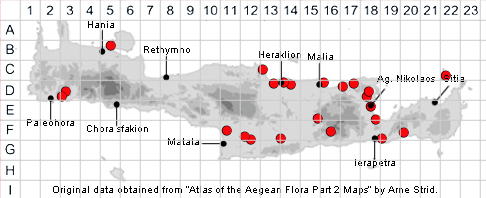
SPECIES DESCRIPTION
CHENOPODIUM OPULIFOLIUM
Family and Genus:- See- AMARANTHACEAE
Common Name:- Grey goosefoot.
Homotypic Synonyms:- Chenopodium album var. opulifolium, Chenopodium
album subsp. opulifolium, Vulvaria opulifolia.
Meaning:- Chenopodium (Gr) Goose-foot.
Opulifolium (L) Opulus-leaved, with leaves resembling the guelder
rose.
General description:- Herbaceous plant, Annual.
Stems:-
1) 60-150 cm, erect, much-branched, green to almost white, rarely red-tinged, more
or less grey-farinose.
Leaves:-
1) At least the middle and lower rhombic-ovate, almost as wide as long, usually
with a short, prominent lobe on each side, otherwise entire or partially dentate.
Flowers:-
1) Inflorescence, with a very grey-farinose panicle.
2) Sepals, keeled.
Fruit:-
1) Seeds, 1·1-1·5 mm diam, obtusely keeled.
a) testa, not pitted.
Key features:-
1) Most leaves more than 1.5 times as long as broad, 3-lobed.
2) Inflorescence, variously farinose, with small, narrow leaves in the lower part.
Habitat:- Cultivated places, waste ground, waysides. 0-600 m.
Distribution:- Widespread across the Mediterranean region and C Europe. Limited
distribution on Crete, mainly around the C & E coastal areas.
Flowering time:- May-Oct.
Photos by:- Thomas Giannakis
